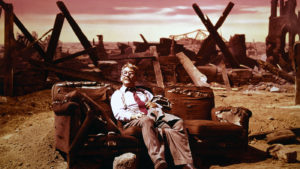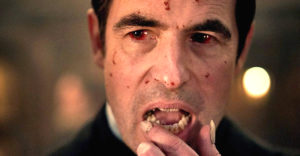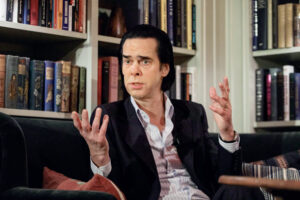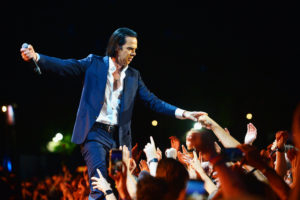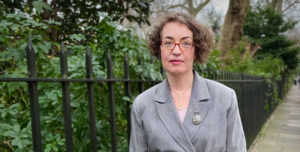Jerome Rothenberg, aged 91, has made immeasurable contributions to American poetry over the past seven decades. Born in New York in 1931, he first came onto the scene in 1959 with New Young German Poets, the unintended fruit of his just-completed service in the US Army’s occupation of Germany. This collection of Rothenberg’s translations included poems by Paul Celan, the German-language Jewish author of “Death Fugue”, a work that single-handedly refutes Theodor Adorno’s scepticism about the viability of “poetry after Auschwitz”: it turns out there can be poetry after Auschwitz, even if we may not like what we see.
But Rothenberg’s most enduring contribution would come a decade later, after a fairly radical shift from modernism to the new project of “ethnopoetics”. This shift led him to work in the vein of the anthologist, notably while compiling his Technicians of the Sacred: A Range of Poetries from Africa, America, Asia, and Oceania (1968), collecting and sharing the work of poetic traditions from around the world, rather than centring his own “sole-author” work as a poet. But the line is never so clear, and in hindsight it seems reasonable to suppose that Rothenberg’s anthological work is itself a variety of poiesis, by which he transmits to the attention of English-language readers a vastly deeper and more vital sense of what poetry might be, and of what poetry long was, than the one we got stuck with in the modern period.
What we call “poetry” today is mostly an etiolated art form, a vestige of something that in its more archaic expressions does a great deal more — does everything, in fact. Poetry, for much of human history, was not words on a page, for there were no pages, and words were not conceived as having a visible dimension at all. Nor was poetry just spoken words, but rather these words were one component of a total artistic form that also included motion, gesture, and, often, rhythm and melody. Its purpose was to realign the human with the cosmic, to affirm the embeddedness of our mundane earthly experience within a vastly larger order that also includes the animals, the elements, the heavens, the ancestors, and the gods.
The ultimate dismantling of this total art form has occurred in lockstep with the professionalisation of the scientific disciplines and with the process of secularisation over the past several centuries. Yet even in its reduced modern form, one of the things poetry still commonly aspires to do, as best it can, is to tap into the sense of the sacred — even if its creators often do so without any overt commitment to the reality of the realms their artistic sense moves them to explore.
I have for some years been working on a translation of the Siberian Sakha-language oral-epic tradition known as Olonkho. Throughout this work, for a long time, though I was becoming quite adept at simulating Sakha meter and metaphor in English, I did not think of myself as a poet. Jerry Rothenberg convinced me I was mistaken about myself. Some poets draw their material from dreams, some from childhood memories, and others from love or politics. Some poets get their source material directly from other poets working in other linguistic realities.
Yet it would be a mistake to suppose that these realities are just linguistic. For in fact the language of poetry, perhaps especially of “archaic” poetry, is typically condensed out of the entire lived translinguistic reality of the bard who channels it, and to try to reconstruct that reality in another language as if it were entirely constituted from words is to misrepresent (perhaps inevitably) the original work. For this reason, Rothenberg advocates, and practices, what he calls “total translation”: the rendering, in graphic form, of every possible element of another culture’s poetic traditions, including those elements that we do not ordinarily understand as linguistic. What results is also a pale shadow of the original, but it is at least a pale shadow that acknowledges what it is, and that points to everything our secular, textual, and de-ritualised poetry can typically no longer do.
One way of continuing to do these things today is by leaving poetry in our narrow sense behind, and pursuing the sort of performance that we today call “music”, even if archaically this too would have been conceptualised as the work of the poet. Rothenberg has himself consistently blurred the line between recitation and performance. One of the staples of his public appearances over the years has been a chant he learned among the Seneca people in Upstate New York in the Seventies, with a single line uttered in trance-like Sprechgesang — “The animals are coming” — followed by an uncannily realistic impersonation of what sounds like a bear. Many of the younger people in his audiences would likely take issue with the “appropriative” quality of this performance, were it not so compelling, were they not so undeniably in the presence — though such things are generally supposed not to happen anymore — of an old man who has just turned into a wild animal.
Such transformation as this is among the potentials of “archaic” poetry — poetry conceived as a total art form whose purest expression is ritual — unlike what we might ordinarily expect from a recitation of the work of, say, Robert Frost. Such transformation, or something like it, is also possible through a sufficiently vibrant performance in the humble genre of the rock song, and indeed a number of this genre’s familiar names (Warren Zevon, Eddie Vedder), have, over the years, drawn inspiration from Rothenberg’s work. But surely no singer-songwriter’s oeuvre is more overtly indebted to the American poet than that of Nick Cave.
I’ve been listening to Nick Cave for about 35 years, and I have long seen him as one of the few singer-songwriters currently working whose lyrics deserve attention in their own right. But it was only when I happened to learn of our shared admiration for Jerry Rothenberg’s work that I began to see Nick’s lyrical sensibility as distinctly “Rothenbergian”. It dawned on me that Nick might have a greater claim than Jerry to be in the business of creating total works of art out of the “starter culture” of poetry.
That is, Nick generates poetic lyrical ideas, but he doesn’t stop with these. He puts them to music, and then he unfolds them in performances that have, perhaps increasingly in his “late style”, the character of ritual. He appears, in fact, increasingly committed to leading and facilitating some kind of collective transformation. He’s bringing us back to church, like it or not, or perhaps to the liminal place beside the fire in the night where strange and diurnally unfathomable transformations occur.
The brilliant Mexican poet and critic Heriberto Yépez, co-editor of Eye of Witness: A Jerome Rothenberg Reader (2013), sharply observes that “[p]ure Myth cannot exist in a world after Hollywood, nor can the shaman holistically heal because he or she is historically wounded”. Both Jerry and Nick have fully reckoned with this heavy truth of our current condition, and have succeeded in cutting their shamanic potencies with the irony and humour that are the lingua franca of our secular age. Yet for them, this is never a dilution or a compromise, but only a demonstration of their mastery of the idiom of their time and place, their commitment to being “of the world”, and of their moment, even if the aspiration of all poetry is towards the eternal.
Thus does Nick excel in the art of the juxtaposition, the mixture of registers that would be straightforwardly comical if it were not so often poignant, as in 2001’s “Darker with the Day”: “My father sits slumped in the deepening snow / As I search in and out, above, about, and below”; or in 2008’s “More News from Nowhere”: “He asks me for my autograph / I write ‘nobody’ and then / I wrap myself up in my woolly coat / and I blind him with my pen.” Again and again, Nick conjures an image from his internal world — a memory of his long-deceased father, a more recent memory of dealing with needy fans — and then projects it into the eternal mythological register of a Rumi or a Homer.
Jerry’s poetic voice is equally compelling in A Big Jewish Book, where he sought to demonstrate why it is that “after Auschwitz there is only poetry” (my emphasis). This stark reversal of Adorno’s grim formula, I believe, has something to do with Jerry’s awareness, which cannot but assert itself after any honest engagement with “archaic” poetry of the sort anthologised in Technicians of the Sacred, that the primary function of poetry for most of human history has been one of processing or managing the unceasing violence of our lived reality.
This thesis is certainly not original with me. The great Austrian classicist Walter Burkert famously speculated that the origins of human culture lie in expiation rituals meant to counteract the cosmic taint that comes with shedding the blood of animals in hunting. Much archaic poetry seems surprisingly hung up on such vivid phenomena as the sight of a deer’s viscera pouring from its underbelly when it is cut open by the knife of a hunter. Why dwell on such things? Perhaps because violence necessitates poetry; or, to put it the other way around, poetry, properly understood, concerns itself above all with violence.
“I think on the most fundamental level he introduced me to primitive poetry,” Nick told me on the phone from London earlier this year. “I think there was a change in my writing, I can’t really pinpoint it, but I have a feeling that it coincided with me reading Technicians of the Sacred.” It is in the encounter with this anthology, too, that Nick experiences the complicated homecoming every truth-seeking colonial son must face sooner or later: “In Technicians of the Sacred, to my shame, I read my first Indigenous poetry. Even though I’m Australian, I hadn’t really read any of it.”
He recalls the excitement of discovering a new sort of poetry that was “a little violent, deeply surreal, and sexual, and also non-ironic, that was explicitly designed for ritual, and prayers, and transformation, and these sorts of things, which were really very much looked down upon by much of the modern poetry that I would read. I mean the anti-spiritual, ironic modern poetry.”
The poems in Technicians of the Sacred, Nick recollects, “reminded me of the Psalms themselves. They were these religious poems, shall we say, or spiritual or ritual poems, that were deeply violent and at the same time songs of praise, and I think that fed into something that I was blindly reaching around for… an extraordinary enmeshment of style and time, and [of] the mundane and the cosmic… It just blew my mind.” He pauses. “I mean, it’s like the fundamental… the fundamental violence of things.”
Life grows less eventful as we age, and the gap between our quotidian experience and the heroic register into which we spent our youth projecting ourselves only seems to widen. “I keep saying to my wife,” Nick tells me, “that these songs are small, unimpressive autobiographies kind of wrapped up in heroic myths, and religious writing, and wild surrealism.” He continues: “Even though I might be seeing cosmically, [the songs] are rooted in the very most fundamental and mundane events in my rather boring life. And maybe that’s what writers mostly have to do anyway. They just sit. They don’t do anything. Most of us don’t do anything.”
The great Norman O. Brown, author of Life against Death (1959) and coiner of the term “polymorphous perversity”, was himself a famously uxorious homebody. Brown insisted in interviews that there was no contradiction here, that thanks to the liveliness of his imagination, he was able to indulge all his transgressive impulses without so much as getting up from his desk. And this is what the censorious prudes of Left and Right consistently miss about the place of violence in art: it is not a “gateway” to the real thing, nor an approval of human suffering. It is rather a lucid recognition of the fundamental violence of things — even if, per impossibile, we were to render all human beings docile, we would still be getting constantly slammed by nature — and of the deep human need to come to terms with this condition through the free play of the imagination.
We’re older now, and the light is dim. Nick Cave has done much to orient me in the world, and to give expression to my own aesthetic sensibility. In the Eighties this sensibility was, or seemed to be, fundamentally exclusionary: it was all about carving out a narrow territory of style and attitude and despising everything else. In our late dim light, by contrast, we seem to have grown far more capacious, far more generous.
This generosity, too, it seems to me, is Rothenbergian in spirit. It has to do, I think, with a recognition of one’s place in the long chain of a tradition, which is another way of saying recognition of one’s debt to the ancestors, so that one can only approach creative work with humility and awe. We see this again and again in Nick’s willing adoption of the role of the apprentice, to sing a cover of Screamin’ Jay Hawkins or Leonard Cohen or Bertolt Brecht, without any concern to outdo the masters, but only, it seems, to experience the joy of channelling them.
Because this tradition is a mythopoetic one, the spirit channelled through its apostles takes account of the full range of human experience, and therefore often turns violent. Nick Cave and the Bad Seeds’ landmark 1995 album, Murder Ballads, channels violence in its purest form, and perhaps gives us the nec plus ultra of homicidal ideation in its rendition of the blues classic “Stagger Lee”. Would Nick really crawl over 50 good pussies just to get to one fat boy’s asshole? Probably not, but that is a philistine question. The faculty of the imagination is not the same thing as the will, and what an artist is channelling under the spell of mythopoetic violence is not an action plan, a manifesto or a credo, but a complete picture of human life. This is a picture that traditional and popular art forms, notably Delta blues, have excelled in capturing, in contrast with profit-driven and algorithmically optimised commercial entertainments, which unsurprisingly veer towards a conception of art as handmaiden of conventional morality and thus as appropriately inhabiting only a very limited range of possible human perspectives.
That Nick has not sought to live down any of his decades-old “excesses”, but has only kept refining them into an even purer distillation of violence (“Stagger Lee” remains a staple of his performances) is a testament to his mature inhabitation of the role of mythopoetic bard and of transgenerational mediator of tradition. In a personal sense, he seems only to grow more gentle; I’ve watched a number of tense early interviews with him, and these are a universe away from the amicable and kind spirit he maintains in interaction with strangers today, at least some of whom must objectively be quite dull. On the fence about Christianity for many years, and as far as I know resigned to some permanent condition of agnosticism, Nick has for all that arrived at Christianity’s ethical core, where loving the stranger obviates any perceived need to fix your beliefs, since this love is itself a “proof” of the reality of the divine. And yet through all this moral growth Nick just keeps putting holes in Billy Dilly’s motherfucking head, night after night, year after year. This is good for his art, of course, but it is also, if violence must exist, a pretty good way of dispatching it, through sublimation, from our own midst.
There are precious few graceful old rock stars out there, and to become one seems to me almost the same thing as transcending the limitations of the genre. In Nick’s case, I think this apparent transcendence has something to do with his positioning of himself, by design or by instinct, in the lineage of the poets — and with his understanding, no doubt helped by his discovery of Jerry Rothenberg’s work, that poetry properly understood is the total art form, from which all the other modern art forms have been parted out. It is the art form that reckons with the violence of things, and continually sets our broken world back in order again.
Disclaimer
Some of the posts we share are controversial and we do not necessarily agree with them in the whole extend. Sometimes we agree with the content or part of it but we do not agree with the narration or language. Nevertheless we find them somehow interesting, valuable and/or informative or we share them, because we strongly believe in freedom of speech, free press and journalism. We strongly encourage you to have a critical approach to all the content, do your own research and analysis to build your own opinion.
We would be glad to have your feedback.
Source: UnHerd Read the original article here: https://unherd.com/

